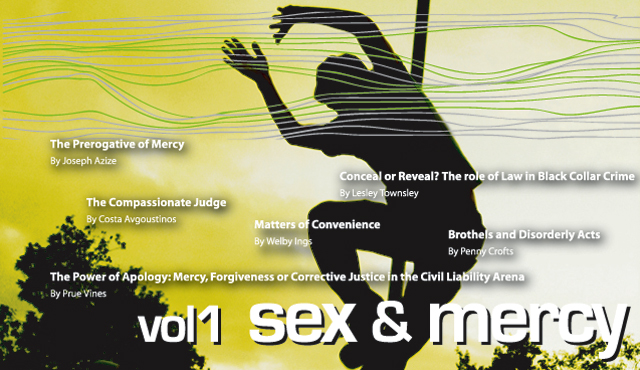Conceal or Reveal? The Role of Law in Black Collar Crime (2007) Vol 1 Art 4
Main Article Content
Abstract
This article reconsiders the way in which the State deals with the suppression or concealment of crimes, particularly child sexual abuse, by members of institutions such as churches. There are legal mechanisms available to bring such prosecutions and yet they are not being utilized. This article critically analyses the exemption from prosecution for concealing a serious indictable offence, by members of the clergy under section 316 (4) of the Crimes Act 1900 (NSW); and that section’s relationship to the religious confession privilege under section 217 of the Evidence Act 1995 (NSW). The article deconstructs the three major justifications underpinning the legislative provisions. These justifications overlap, but can be isolated under the following headings: history, freedom of religion, and spiritual considerations. I argue that interpretation of section 316 (4) of the Crimes Act 1900 should, at a minimum, be confined to the scope of the religious confession privilege in section 217 of the Evidence Act 1995. Further, I argue that the justifications underpinning the legislative scheme and the assumptions they are based on are untenable in a secular society.
Article Details
Issue
Section
Articles
Copyright in the manuscript remains with the author(s). The author(s) grants the University of Technology, Sydney a licence to exercise any exclsuive rights of the copyright owner required to publish, distribute and advertise PublIc Space: the Journal of Law and Social Justice.
